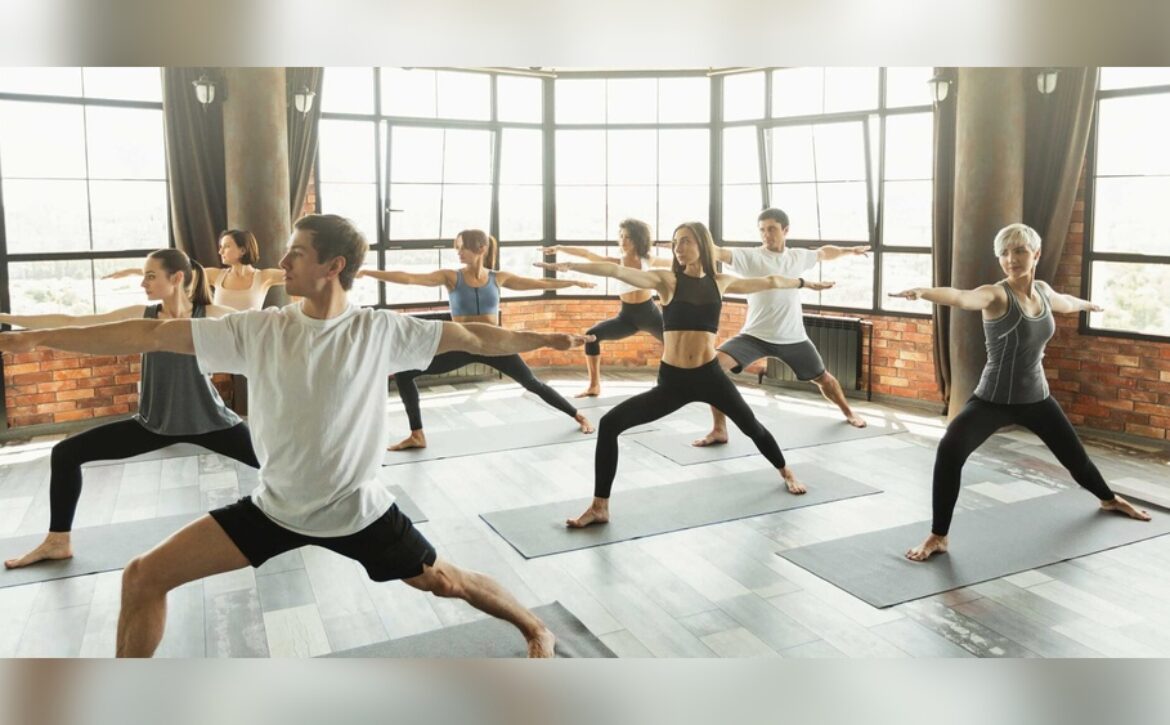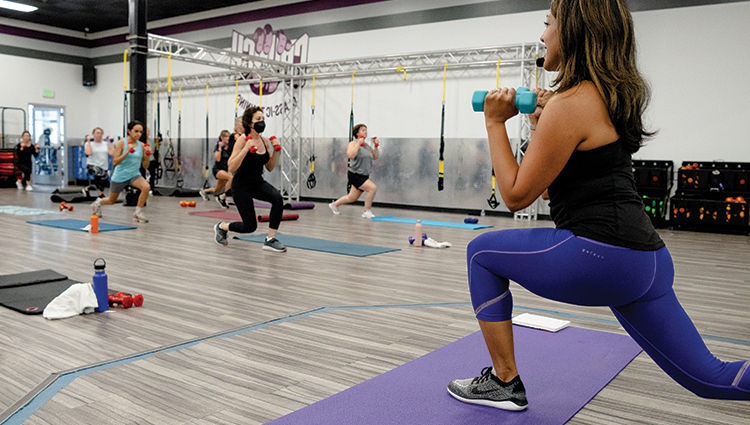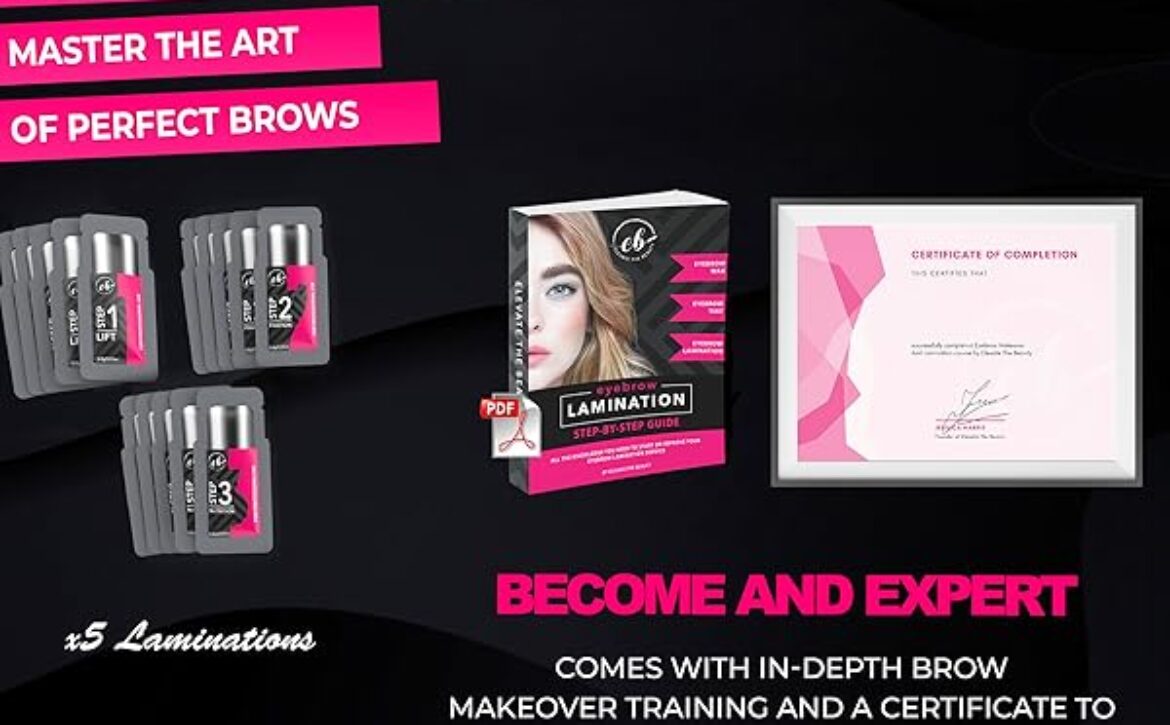
How to Become a Fitness Instructor: Your Step-by-Step Guide
Have you ever thought about turning your passion for fitness into a rewarding career? Becoming a fitness instructor not only lets you stay in shape but also inspires others to lead healthier lives.
Imagine waking up every day, doing what you love, and making a difference in people’s lives. Sounds exciting, right? In this guide, you’ll discover the simple steps to transform your enthusiasm for fitness into a professional path. Whether you’re a gym enthusiast or just starting your fitness journey, this article will provide you with the insights and motivation needed to take that next step.
Get ready to unlock your potential and make a lasting impact on others. Your future as a fitness instructor could be just a few steps away!

Understanding The Role
Becoming a fitness instructor involves understanding exercise techniques and safety. Gaining certifications enhances your skills and credibility. Engaging with clients helps tailor programs to meet their fitness goals.
Becoming a fitness instructor is about much more than just leading a class or counting reps. It’s about inspiring people to reach their fitness goals and guiding them through safe and effective workouts. Before diving into this exciting career, it’s crucial to grasp what the role truly entails.
Daily Responsibilities
A fitness instructor’s day is dynamic and varied. You might start with a morning class, motivating a group of early risers through a high-energy workout. Later, you could be crafting personalized exercise plans for clients, ensuring each plan suits their individual needs and fitness levels. Monitoring progress is also a key task. This involves assessing clients’ performance and making necessary adjustments to their routines. Keeping track of each client’s journey not only helps them improve but also enhances your effectiveness as an instructor. Administrative tasks can’t be ignored. You’ll handle scheduling, manage class bookings, and sometimes even promote your classes. Balancing these duties efficiently ensures you’re prepared and organized for each session.
Skills Required
To excel as a fitness instructor, certain skills are non-negotiable. Communication is at the forefront—clearly conveying instructions and providing feedback is essential. Your words can motivate clients to push through challenging parts of their workouts. Empathy and patience play a significant role too. Everyone progresses at their own pace, and understanding this is key to keeping clients motivated. You may recall a time when patience helped a client overcome their fear of a new exercise, reinforcing the importance of these skills. Adaptability is crucial. Each class or client session can present new challenges, requiring quick thinking to adjust plans or techniques. A client may suddenly need modifications due to an injury—your ability to adapt on the fly keeps the session safe and effective. Are you ready to embrace these responsibilities and develop these skills? Understanding the role deeply can set you on the right path toward becoming a successful fitness instructor.
Educational Requirements
To become a fitness instructor, understanding educational requirements is essential. These requirements shape your career and ensure you have the knowledge needed. While passion drives this career choice, formal education and certifications provide a solid foundation. They equip you with the skills to excel in this dynamic field.
Relevant Degrees
Pursuing a relevant degree can enhance your credibility. Degrees in exercise science or kinesiology are popular choices. These programs cover anatomy, physiology, and nutrition. They provide insights into the human body and physical health. Some instructors also opt for sports management degrees. This helps in understanding the business side of fitness.
Universities offer bachelor’s degrees in these fields. They usually span four years and include practical training. This education is important for those seeking in-depth knowledge. It prepares you for various roles in the fitness industry.
Certification Programs
Certification programs are crucial for aspiring fitness instructors. They validate your skills and knowledge in specific areas. Organizations like ACE, NASM, and ACSM offer certifications. These programs focus on personal training, group fitness, and specialized workouts.
Certification programs often include exams and practical assessments. They ensure you can apply theoretical knowledge effectively. Many programs require ongoing education to maintain certification. This keeps instructors updated with industry trends and new techniques.
Choosing the right certification depends on your career goals. Some focus on general fitness, while others specialize in areas like yoga or Pilates. Research programs thoroughly to align them with your interests.
Gaining Experience
Gaining experience is essential for aspiring fitness instructors. It helps build confidence and skills. Real-world experience is invaluable. It connects theory with practice. This section explores ways to gain experience effectively.
Internships And Apprenticeships
Internships offer hands-on learning. Many gyms provide these opportunities. You learn from experienced trainers. It’s a chance to understand daily tasks. Apprenticeships provide structured training. They often include mentorship. This guided learning helps improve techniques.
Both internships and apprenticeships are stepping stones. They introduce you to industry standards. You witness client interactions. This exposure is crucial for personal development. You can ask questions and gain feedback.
Volunteering Opportunities
Volunteering is another path. Community centers often need fitness help. Schools and local events seek volunteers. These opportunities help build rapport. You connect with diverse groups. Volunteering can lead to networking. It’s a chance to learn and grow.
Working with different people enhances adaptability. It sharpens communication skills. Volunteering teaches responsibility. It builds trust and reliability. This experience enriches your resume.

Building Your Portfolio
Creating a strong portfolio is key for aspiring fitness instructors. Showcase your skills with videos and testimonials from clients. Highlight certifications and specialized training to stand out.
Building Your Portfolio Embarking on your journey to become a fitness instructor requires more than just a passion for exercise; it demands a strategic approach to showcase your skills. Building a robust portfolio is your ticket to impress potential employers or clients. It’s your chance to highlight not just your qualifications, but your unique approach to fitness. Start by focusing on two key elements: creating a standout resume and showcasing your achievements.
Creating A Resume
Your resume is the first impression you make. Keep it concise and focused. List your certifications, educational background, and relevant experiences. Use bullet points for clarity. Highlight your specialties. Are you skilled in yoga, weight training, or aerobics? Specify these areas to attract the right opportunities. Think about your career goals. Tailor your resume to fit the roles you aspire to. If you aim to work in a high-energy gym, emphasize experiences that demonstrate your enthusiasm and energy.
Showcasing Achievements
Achievements speak louder than words. Display your accomplishments boldly. Did you lead a successful class? Mention the attendance numbers or client feedback. Consider creating a visual portfolio. Include photos or videos of classes you’ve taught. This can help potential clients visualize your style and approach. Reflect on your personal milestones. Did you overcome any challenges in your fitness journey? Sharing these can make your portfolio relatable and inspiring. — Building your portfolio is about more than listing qualifications; it’s about telling your story. How do you stand out in the crowded world of fitness instruction?
Finding Employment
Start by gaining a relevant fitness certification to become a fitness instructor. Build your skills through hands-on experience at local gyms or wellness centers. Network with professionals in the industry to find job opportunities and enhance your career prospects.
Finding employment as a fitness instructor can be an exciting yet challenging journey. After gaining the necessary qualifications, the next step is to land a job that matches your skills and passion. But how do you stand out in a crowded field and secure that perfect position?
Job Search Strategies
Start by identifying the type of fitness environment where you want to work. Are you drawn to a bustling gym, a serene yoga studio, or perhaps a community center? Knowing your preference helps you target your job search effectively. Leverage online job portals dedicated to the fitness industry. Websites like Indeed, Glassdoor, and specific fitness job boards can be gold mines for fresh opportunities. Set up job alerts to stay updated on new openings. Don’t forget about social media. Platforms like LinkedIn can be powerful tools to discover job postings and connect with potential employers. Follow fitness brands and influencers to keep your finger on the pulse of the industry.
Networking Tips
Building a strong network can significantly boost your job prospects. Attend local fitness events, workshops, and seminars to meet other professionals in the field. These gatherings provide great opportunities to learn and connect. Join fitness-related groups on social media. Engaging in discussions and sharing insights can help you build relationships with peers and industry leaders. Your online presence can open doors to unexpected opportunities. Consider reaching out to instructors you admire. A simple message expressing admiration for their work can start a meaningful conversation. Many professionals are happy to share their career experiences and advice. Have you ever thought about the impact of word-of-mouth? A recommendation from a colleague or friend can sometimes be the key to getting hired. Keep your network informed about your job search and be open to their suggestions. By focusing on these strategies and tips, you can navigate the job market with confidence and find a position that aligns with your goals.
Continuous Learning
Continuous learning is the heartbeat of a successful fitness instructor. As you step into the vibrant world of fitness, you must embrace change and growth. To stay ahead, you need to be a sponge, soaking up new knowledge and techniques. The industry is always evolving, and your ability to adapt will set you apart.
Advanced Certifications
Earning advanced certifications is like adding new tools to your fitness toolkit. They can open doors to specialized areas such as yoga, Pilates, or sports conditioning. Imagine the satisfaction when your clients achieve their goals using techniques you learned from these advanced courses.
Consider certifications from reputable organizations like ACE, NASM, or ACSM. These credentials can boost your credibility and expand your career opportunities. They demonstrate your commitment to learning and professional growth.
What certifications are you aiming for next? Set a goal and make it happen.
Staying Updated With Trends
The fitness industry is like a living organism, constantly changing and adapting. New trends emerge all the time, from high-intensity workouts to mindful movement practices. You need to keep your finger on the pulse of these shifts.
Subscribe to industry publications, follow influential fitness personalities, and join online forums. These sources can provide insights into what’s hot and what’s fading away. Being aware of trends not only keeps your classes fresh but also excites your clients.
Are you ready to be the first to introduce the latest fitness craze to your clients? Stay curious and proactive.
Continuous learning isn’t just about keeping up; it’s about leading the way. Equip yourself with the knowledge and skills to be the best fitness instructor you can be. Your journey of growth will inspire others to follow in your footsteps.
Starting Your Own Business
Explore the path to becoming a fitness instructor by acquiring essential certifications. Dive into practical training and gain hands-on experience. Build a strong client base by showcasing your skills and promoting healthy living.
Starting your own fitness instructor business can be exciting and rewarding. It allows you to work on your terms and inspire others. Begin by understanding the basics of launching a successful venture. Focus on creating a solid plan and effective marketing strategies. These elements will set your business on the right path.
Business Planning
A clear business plan is crucial for any new venture. Start with defining your goals and target audience. Decide if you want to offer group classes or personal training. Assess your skills and identify areas for improvement. Calculate your costs to ensure you stay within budget. Consider location, equipment, and insurance expenses. Research competitors to find gaps in the market. This knowledge will help you stand out. Set realistic timelines for achieving your milestones. Regularly review and adjust your plan as needed.
Marketing Strategies
Effective marketing attracts clients to your business. Begin by building a strong online presence. Create a website showcasing your services and expertise. Use social media to connect with potential clients. Share fitness tips, success stories, and engaging content. Encourage satisfied clients to leave positive reviews. Word-of-mouth remains powerful in attracting new clients. Consider collaborating with local businesses for cross-promotion. Offer free workshops or classes to increase visibility. Always track the results of your marketing efforts. Adjust strategies based on performance for better outcomes.

Frequently Asked Questions
What Qualifications Are Needed For A Fitness Instructor?
To become a fitness instructor, you typically need a certification from a recognized organization. Common certifications include NASM, ACE, and ACSM. Some employers may also require a CPR/AED certification. Having a background in exercise science or kinesiology can be beneficial but is not always mandatory.
How Long Does It Take To Become Certified?
The time to become a certified fitness instructor varies. Most certification programs can be completed within three to six months. This depends on the time you dedicate to studying. Some accelerated programs offer certification in as little as a few weeks.
Do Fitness Instructors Need A College Degree?
A college degree is not mandatory to become a fitness instructor. However, a degree in exercise science or a related field can enhance job prospects. Certifications are generally more important. They demonstrate your knowledge and skills in the fitness industry.
What Skills Are Essential For A Fitness Instructor?
Key skills for fitness instructors include strong communication, motivational ability, and knowledge of exercise techniques. Understanding human anatomy and injury prevention is crucial. Being personable and having the ability to inspire clients is also important for success.
Conclusion
Becoming a fitness instructor is a rewarding journey. It requires dedication and passion. Start by gaining knowledge and skills. Choose courses that fit your goals. Practice regularly to hone your abilities. Build a strong network in the fitness community. This helps in finding opportunities.
Stay updated with the latest trends. This keeps your training fresh and effective. Remember, patience is key. Progress takes time, but the effort is worth it. Inspire others with your enthusiasm and energy. Your journey can motivate many to lead healthier lives.
Embrace this fulfilling path with confidence and joy.




